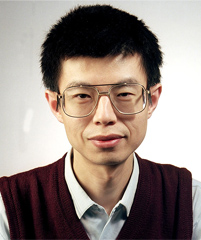
Prof. Qingsheng Zeng, Senior Research Engineer, Communications Research Centre Canada
Speaker's bio:
Qingsheng ZENG received his Ph.D. from University of Ottawa, Canada, and is a senior research engineer at Communications Research Centre Canada (CRC), Government of Canada, an adjunct professor of University of Ottawa, Carleton University, Université du Québec an Outaouais (UQO), and Institut National de la Recherche Scientifique – Centre Energie, Matériaux et Télécommunications (INRS-EMT). He has published more than 80 SCI and EI indexed papers and technical reports, authored and co-authored one book and two book chapters, one of which has been cited more than 3000 times only in one year after it was published. Dr. Zeng has been serving as an editorial board member and a reviewer for a number of technical books and scientific journals, as a session organizer and chair, a technical program committee member and reviewer, a short course/workshop/tutorial presenter and a keynote speaker for many international and national symposia. He is a member of the Strategic Projects Grant (SPG) Selection Panel (Information and Communications Technologies B) for the Natural Sciences and Engineering Research Council of Canada (NSERC). Dr. Zeng is the Chair of AP (Antennas and Propagation) / MTT (Microwave Theory and Techniques) Joint Chapter of IEEE Ottawa and a senior member of IEEE. He has won several technical and technical service awards, and was ranked as one of the researchers at Communications Research Centre Canada with the strongest impacts in 2011.
Speech title: Propagation Prediction Based on Physical Optics
Speech abstract:
Physical optics (PO) or Fresnel-Kirchhoff theory forms the base to solve the problem of diffraction over terrain or buildings, particularly when the terrain or buildings can be modeled as knife edges. Because the numerical integration required to solve the realistic problems is very time-consuming, physical optics is not commonly used in the original formulations for developing the related software products. In order to increase the computational efficiency, a number of assumptions and simplifications have been made. In this presentation, Fresnel-Kirchhoff theory is briefly reviewed, the assumptions and simplifications made for improving the computational efficiency is explained and clarified, the software performance is analyzed through the comparison between prediction and measurement, the inherent drawbacks of the software and its limitations in application are discussed, and possible improvement of the prediction algorithm and procedure is proposed. |

